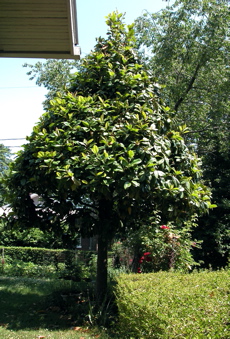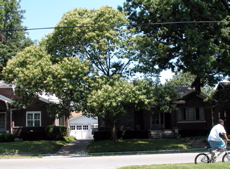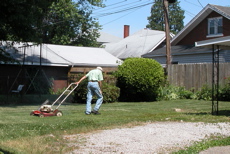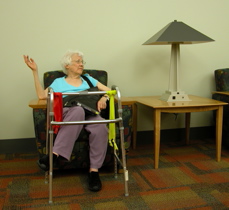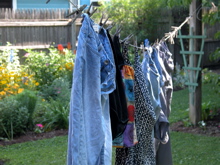Life After Death
May 1994
My great journalistic contribution to my family is that I write obituaries. First my mother’s, twenty-two years ago, listing her accomplishments: two daughters, three sons. Then that of my father’s second wife, dead of the same disease that killed his first one.
Last week it was my sister-in-law. “Sherry Quindlen, 41,†I tapped out on the keyboard, and then it was real, like a last breath. “When you write about me,†she said one day in the hospital, “be nice.â€
For the obit I could only be accurate. The limitations of the form eliminate the more subjective truths: a good heart, a generous soul, who made her living taking care of other people’s children. My brother’s wife, the mother of a teenager and a toddler, who went from a bad cough to what was mistakenly said to be pneumonia to what was correctly diagnosed as lung and liver cancer, from fall to spring, from the day she threw a surprise fortieth birthday party for her husband to the day he chose her casket.
Only days after the funeral her two daughters were shopping together when a saleswoman looked at them and said admiringly, “Your mother must have beautiful hair.”
“Yes she does,” said the elder, who had learned quickly what is expected of survivors.
Grief remains one of the few things that has the power to silence us. It is a whisper in the cold and a clamor within. More than sex, more than faith, even more than its usher death, grief is unspoken, publicly ignored except for those moments at the funeral that are over too quickly, or the conversations among the cognoscenti, those of us who recognize in one another a kindred chasm deep in the center of who we are.
Maybe we do not speak of it because death will mark all of us. Sooner. Or later. Or maybe it is unspoken because grief is only the first part of it. After a time it becomes something less sharp but larger, too, a more enduring thing called loss.
Perhaps that is why this is the least explored passage: because it has no end. The world loves closure, loves a thing that can, as they say, be gotten through. This is why it comes as a great surprise to find that loss is forever, that two decades after the event there are those occasions when something in you cries out at the continuous presence of an absence. “An awful leisure,” Emily Dickinson once called what the living have after death.
Sherwin Nuland, a doctor and professor at Yale, has become an unlikely bestselling author with a straightforward, unsparing yet deeply human description of the end of life entitled How We Die, In the introduction he explains that he has written the book “to demythologize the process of dying.”
But I wondered, reading on, if he was doing something else as well. He wrote: “My mother died of colon cancer one week after my eleventh birthday, and that fact has shaped my life. All that I have become and much that I have not become, I trace directly or indirectly to her death.”
Loss as muse. Loss as character. Loss as life. When the president talks of moving some days to the phone to call his mother, who died in January, he is breaking a silence about what so many have felt. “The hard part is for those of us who’ve kept silent for decades to start talking about our losses,” Hope Edelman writes in her new book, Motherless Daughters. Yet how second nature the silence becomes, so much a rule of etiquette that a fifteen-year-old knows, when her loss is as raw as a freshly dug grave, not to discomfit a stranger by revealing it in passing.
All that she and her sister will become, and much they will not, will be traced later on to a time when spring had finally passed over the threshold of winter and the cemetery drives were edged with pink tulips, shivering slightly in a chill April rain. My brother and I know too much about their future, both teenagers when our mother died; we know that if the girls were to ask us, “When does it stop hurting?” we would have to answer, in all candor, “If it ever does, we will let you know.”
The landscapes of all our lives become as full of craters as the surface of the moon. My brother is a young widower with young children, as his father was before him. And I write obituaries carefully and think about how little the facts suffice, not only to describe the dead but to tell what they mean to the living all the rest of our lives. We are defined by who we have lost. “Don’t let them forget me,” Sherry said. Oh, hon, piece of cake.
The above, the second of three Anna Quindlen articles sent to me by Chris. As I read the last sentence, tears welled up in my mother’s eyes.
“What’s the last one?†Helen asked.
“It’s called Anniversary. Let’s read it out on the porch.â€
“No, let’s read it now.â€
We’d just finished our oatmeal, coffee and the morning’s crossword puzzle while, as usual, my father scoured his Wall Street Journal.
Anniversary is much longer and I thought it more appropriate to read it in a controlled, comfortable setting. Outside where the storm clouds were a brewin’ . Bundled in the same manila envelope, it arrived with the loudest warning: “’Anniversary’ spoke to me so much it was unbearable to read the first, second and twentieth timeÖ .â€
The short story begins, “I needed my mother again the other dayÖ “ and goes on to describe what it means when a mother dies. Pitiful summary, sorry.
I read the whole thing, start to finish, and we both cried throughout. Or I should say Helen cried. I could see the road hazards and knew enough to pause until I could safely pass by. I was okay as long as I kept my eyes glued to the text and didn’t look up at the tears streaming down my mother’s cheeks. I might add I’ve seen her cry maybe three or four times.
Again, this is excerpted from the book “Loud and Clearâ€. I couldn’t find it on the internet, and it’s too long to type up, but here are three of our stopping points.
“Certainly it is true to say that my father was nearly as lost without his wife as we were without our mother. The difference was that for the widower there is an antidote called marriage.†Helen finished the sentence before I did.
“When I can see myself refracted through the rosy lens of my mother’s love, it melts the self-doubt and brings to life the tiny sanctuary lamp of confidence.â€
“And it would never in a million years have occurred to me that twenty-five years later I would be sitting here writing about all this, the dishwasher and the dryer running, my three wonderful children at school, with tears running down onto my sweater as I realize that I would trade all I’ve learned for what I lost so long ago.â€


